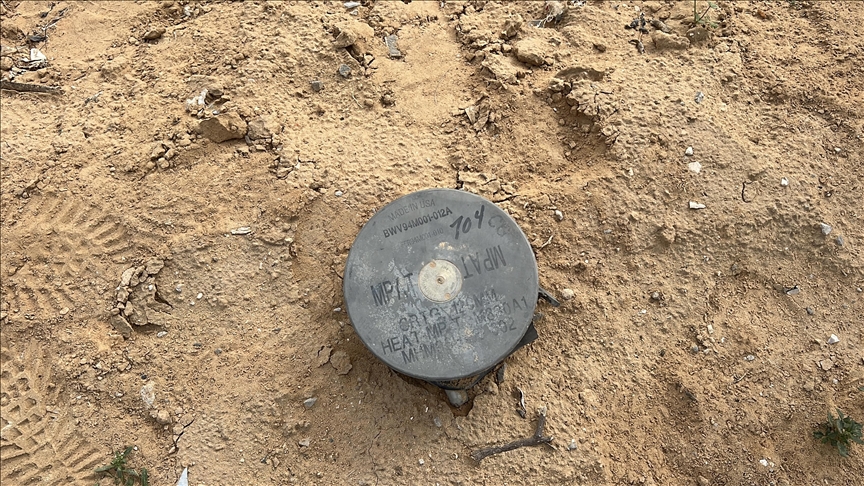Threat of explosive ordnance in Gaza, West Bank affects lives, humanitarian aid: UN official
UN's mine action program chief reports 'at least 92 people have been killed or injured from exposed ordinance since October 23'

HAMILTON, Canada
The UN's mine action program chief in the occupied Palestinian territories said Tuesday that the threat of explosive ordnance in the Gaza Strip and the occupied West Bank affects the delivery of humanitarian aid and civilian safety.
"The threat of explosive ordinance in Gaza and the West Bank is present and impacting the lives of civilians and the delivery of humanitarian aid, including since the ceasefire began," Luke Irving said at a virtual news conference from Gaza.
Irving stated that the UN Mine Action Service (UNMAS) has “encountered a range of explosive ordnance, including aerial bombs, mortars, rockets, projectiles, grenades and improvised explosive devices" in the 14-month crisis.
"These have killed and injured civilians in Gaza and they have risked preventing humanitarian activities from taking place safely," he said.
Noting the dangers posed by the explosives, Irving said that "at least 92 people have been killed or injured from exposed ordinance since October 23. We are continuing to receive reports of incidents from both before and during the ceasefire."
He described the risk to civilians as they encounter explosive ordnance in previously inaccessible areas, and stated, "We have already received informal reports of civilians coming across explosive ordnance in their homes."
"Humanitarian convoys are finding items more and more as we reach new areas which we previously could not get to. This includes include large aircraft bombs, mortars, anti-tank weapons, rockets and rifle grenades," he said.
While he was unable to confirm the number of people killed or injured from explosive ordnance, Irving said UNMAS received reports of "24 victims since the ceasefire is taking place, which averages to over two people per day."
In the occupied West Bank, Irving expressed concern over the situation that is deteriorating due to hostilities.
"We report a significant increase in the number of explosive items found over the past months throughout the West Bank, including in populated areas," he said.
Meanwhile, the Gaza-based Government Media Office warned people Wednesday about the dangers of war remnants left by the Israeli army, noting that hospitals across Gaza received several injured people injured by explosive ordnance.
The first six-week phase of a Gaza ceasefire agreement took effect Jan. 19, suspending Israel’s genocidal war that has killed nearly 47,300 Palestinians, mostly women and children, and injured nearly 111,500 since a Hamas attack on Oct. 7, 2023.
The three-phase agreement includes a prisoner exchange and sustained calm, aiming for a permanent truce and the withdrawal of Israeli forces from Gaza.
The Israeli onslaught has left Gaza in ruins, and its residents displaced, hungry, and prone to disease.
The International Criminal Court issued arrest warrants in November last year for Israeli Prime Minister Benjamin Netanyahu and his former Defense Minister Yoav Gallant for war crimes and crimes against humanity in Gaza.
Israel also faces a genocide case at the International Court of Justice for its war on the enclave.








